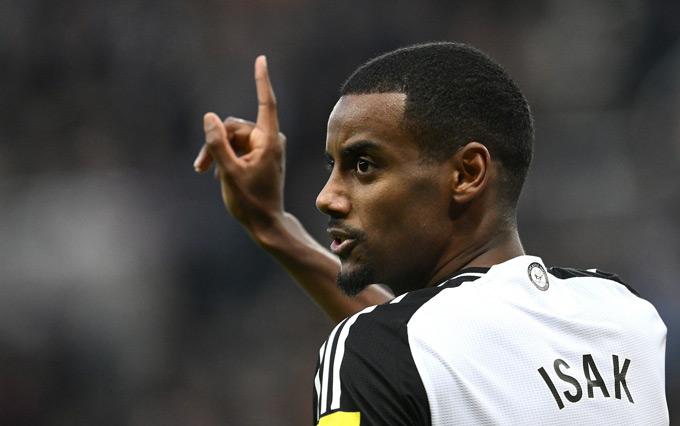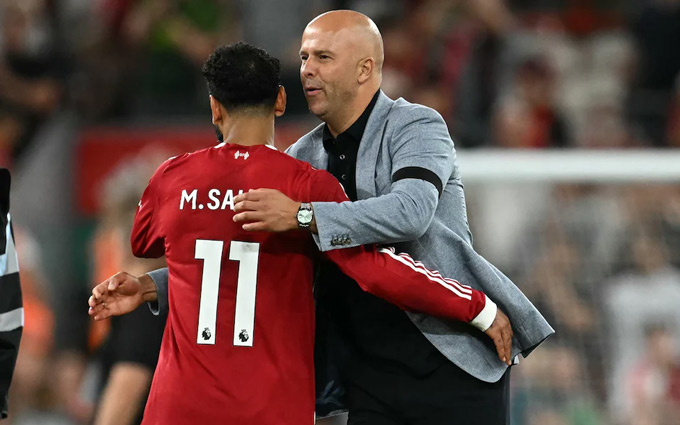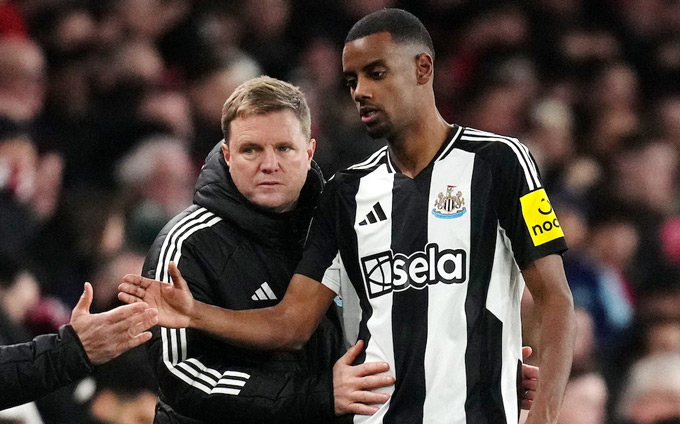Right now, it’s Eddie Howe’s crisis. But soon enough, it could become Arne Slot’s problem.
Time is running out for clubs to add the firepower they desperately need. If Alexander Isak doesn’t become a Liverpool player by the start of next week, both he and Slot may have to accept that this deal won’t happen during the 2025 summer window.

Liverpool have earned praise for their methodical approach throughout the transfer market, but the coming days are crucial to their hopes of defending the Premier League title.
Slot cannot go into the season relying on just three out-and-out forwards: Mohamed Salah, Cody Gakpo, and Hugo Ekitike. That trio alone cannot shoulder the burden of goalscoring, especially with Salah set to miss a significant chunk of the campaign in December while away at the Africa Cup of Nations.
Liverpool must be ruthless. This cannot become a case of “Isak or no one.” If they fail to land their top target, a Plan B must be executed immediately. When Luis Díaz was sold to Bayern Munich, confidence in Liverpool’s recruitment strategy was so strong that fans simply assumed a younger, ready-made replacement was already lined up.
Of course, every Liverpool supporter would love to see Isak in red — but not at any cost. A fee in excess of £130 million would be unrealistic. At that price, many argue Liverpool should be signing Kylian Mbappé, not Isak.
Isak has impressed in the Premier League, but concerns remain. At 25, the Swedish striker has yet to show the same durability as Salah. Across three seasons in England, he has missed 36 starts. Of his last 44 goals, 10 have come from the penalty spot — a duty he wouldn’t be taking on at Anfield.
From the outset, Liverpool knew prising Isak from Newcastle would be extremely difficult. His contract still has three years left, and with Champions League football bringing lucrative revenue, Newcastle have no urgent need to sell.

Whatever Isak’s personal wishes, many expected this transfer could only become realistic 12 months from now. But the situation has spiraled into chaos. Howe currently lacks his best player, and reintegrating him is complicated by the furious reaction from Newcastle fans at Villa Park last weekend.
There’s a vast difference between the loyal away supporters chanting in the stands and the louder, fickle voices on social media. When Howe heard the chants, the idea of Isak being welcomed back as a “prodigal son” once the window closes seemed far-fetched. Even if he stays, it could take weeks or months before he’s ready to return to the pitch. His fiery post-match comments only underscored a desperate push for a “divorce.”
Howe is caught in the middle — and deserves sympathy. He has built a quality squad capable of elevating Newcastle to the next level. It’s easy for fans or pundits to demand that the club “stand firm,” but for Howe, the problem is far more complex.
A star who wants to leave can derail an entire season. Isak now feels “too big” for Newcastle, much like Fernando Torres once felt for Liverpool back in 2010. When Torres finally joined Chelsea in January, many at Anfield admitted to feeling relief that the saga was finally over.

Keeping Isak might help Newcastle win a short-term battle. But selling him and bringing in two strikers could prepare them better for both the Premier League and Champions League campaigns. Howe knows this.
Inevitably, fans will defend their club’s stance and place the blame squarely on the player and his agent. Liverpool will bear the brunt of hostility at St James’ Park when the two sides meet on August 26, but in truth, the reigning champions have done nothing wrong beyond pursuing a top-class striker.
What’s harder to stomach: the unprofessional behavior of a wantaway star and his entourage, or the hypocrisy and double standards of those defending or condemning the saga?
No justification exists for a player refusing to play for the club that pays his wages. No matter the ambition, or broken promises he might claim, it’s unacceptable for a professional earning hundreds of thousands per week to declare outright he won’t step onto the pitch.
If neither club gets what they want before September 1, the cost could be far greater — the collapse of an entire season’s ambitions. This standoff has become a test of who blinks first.